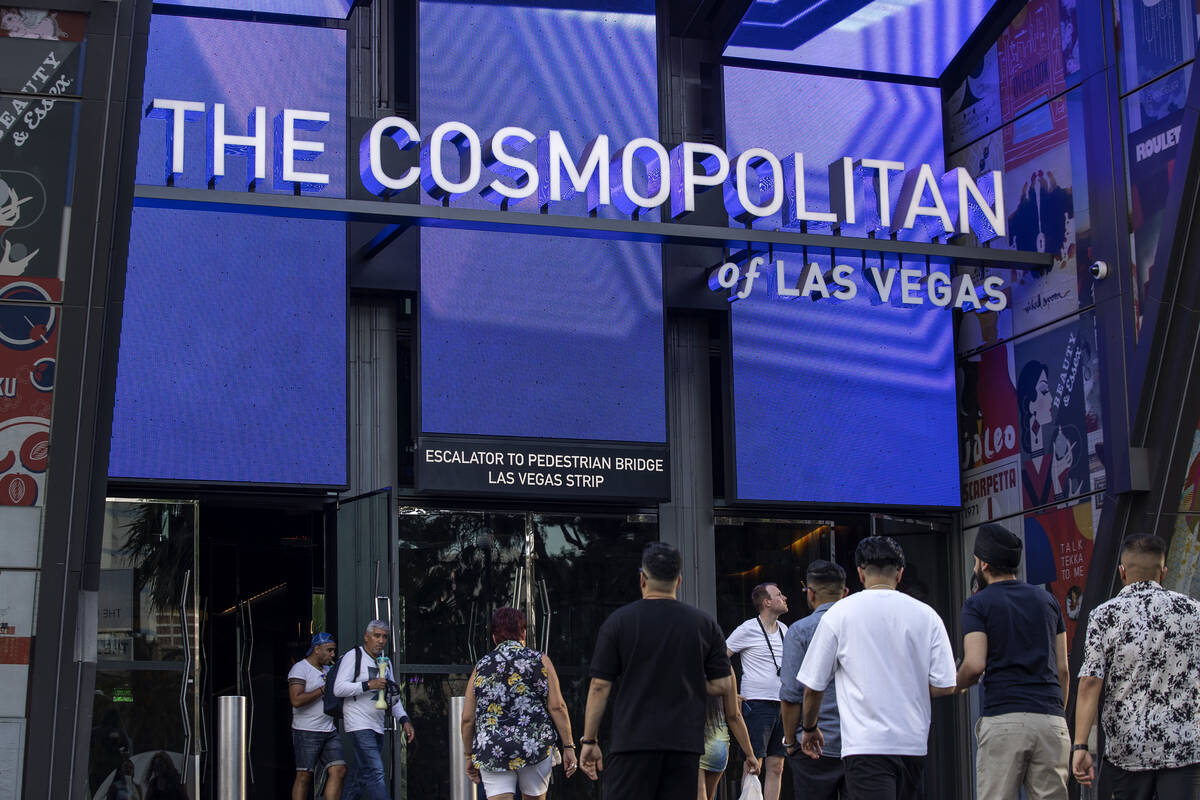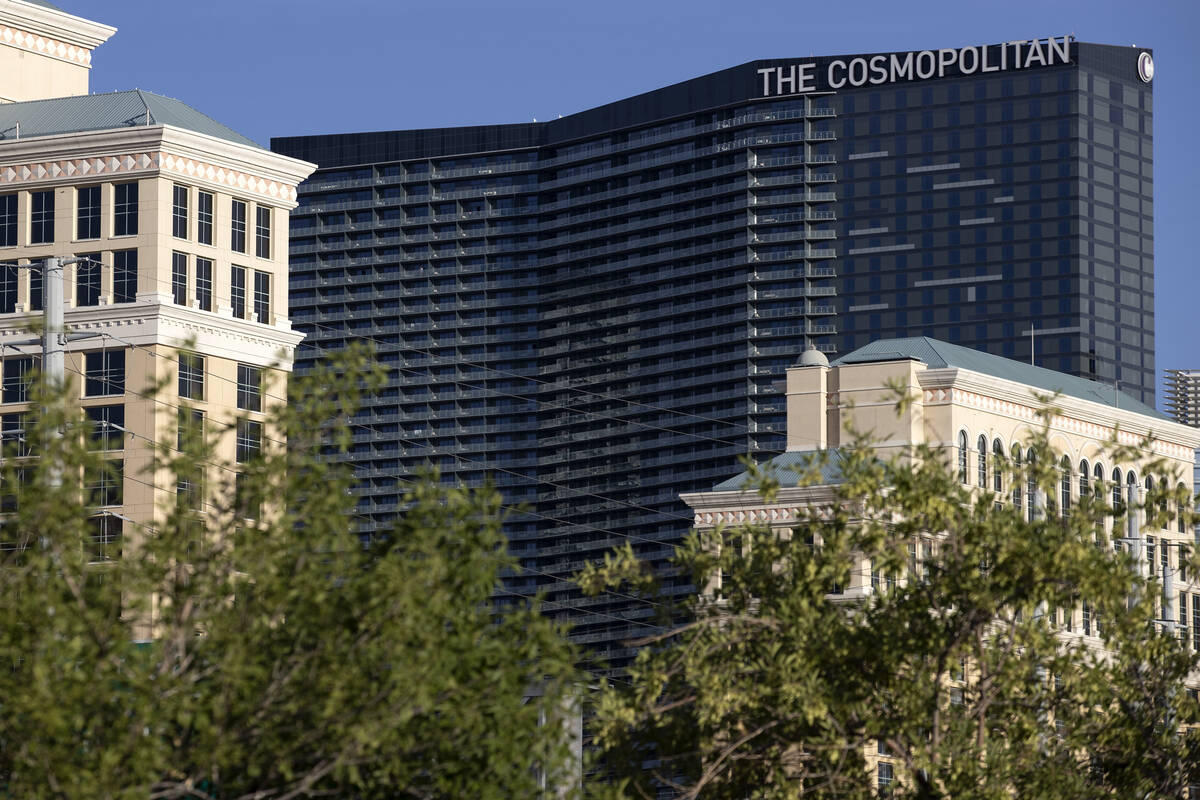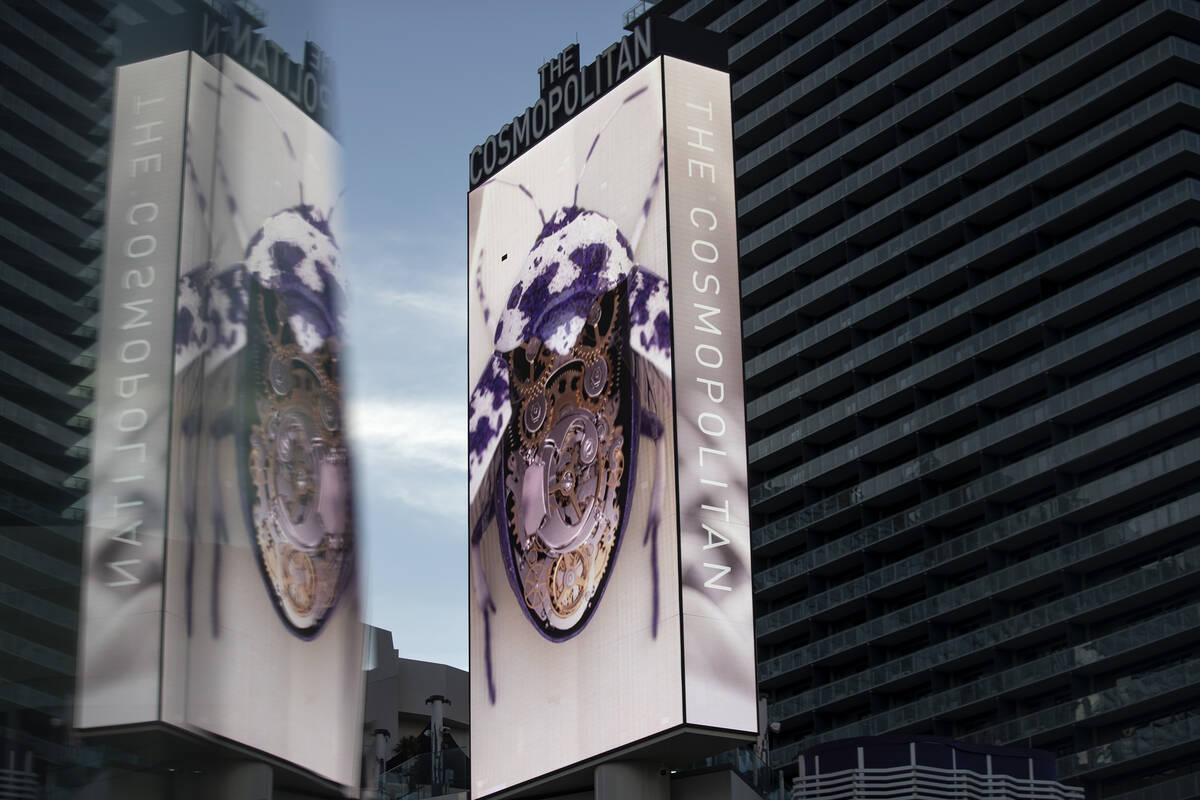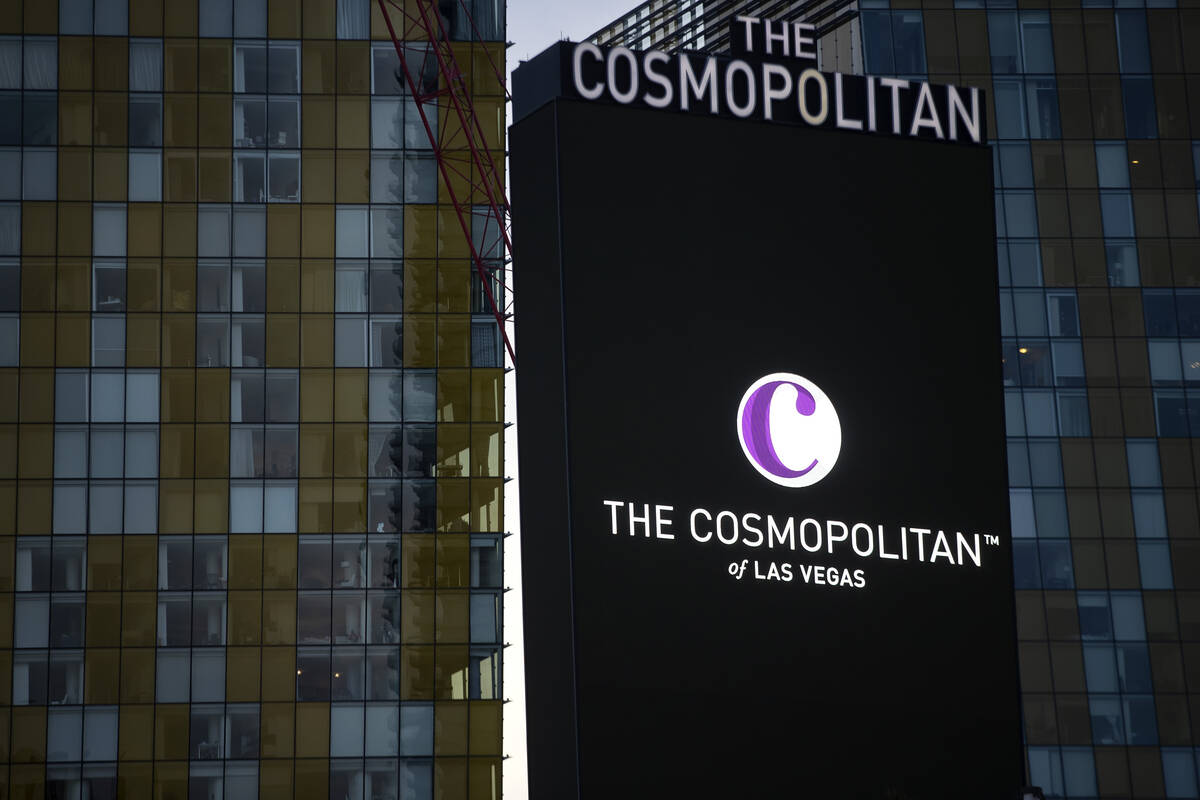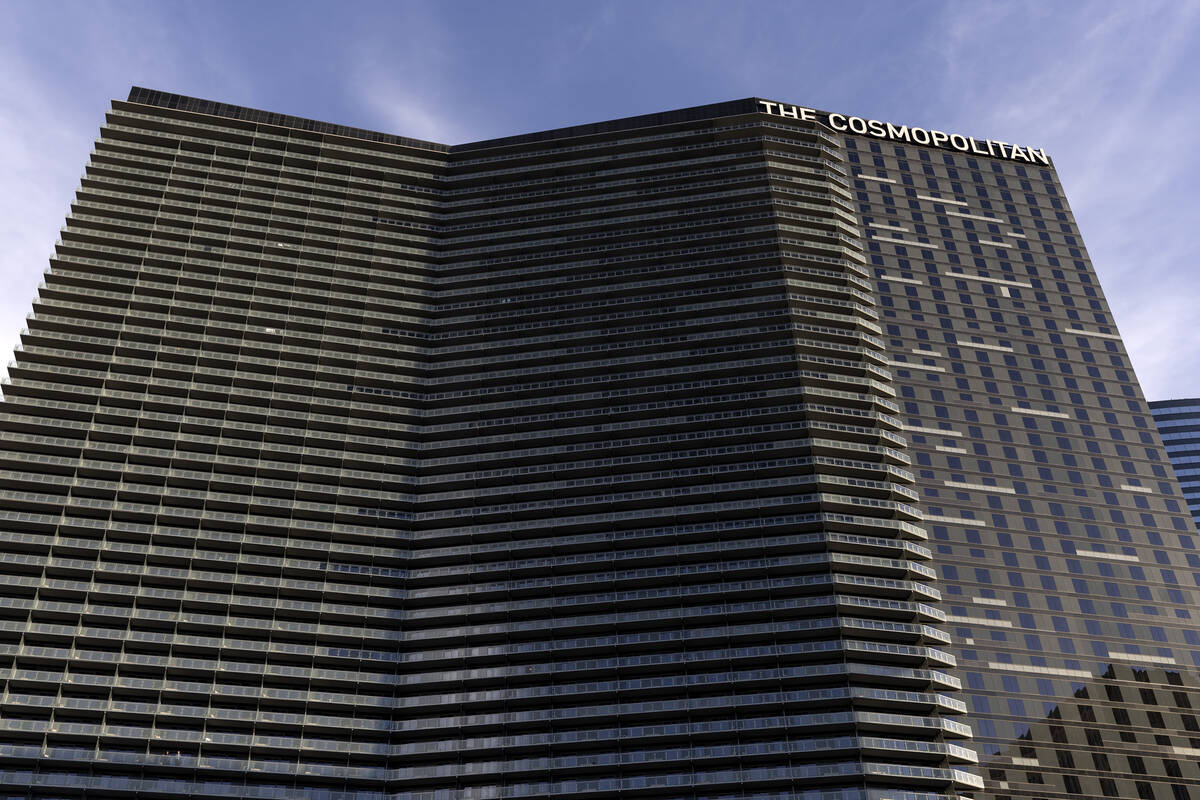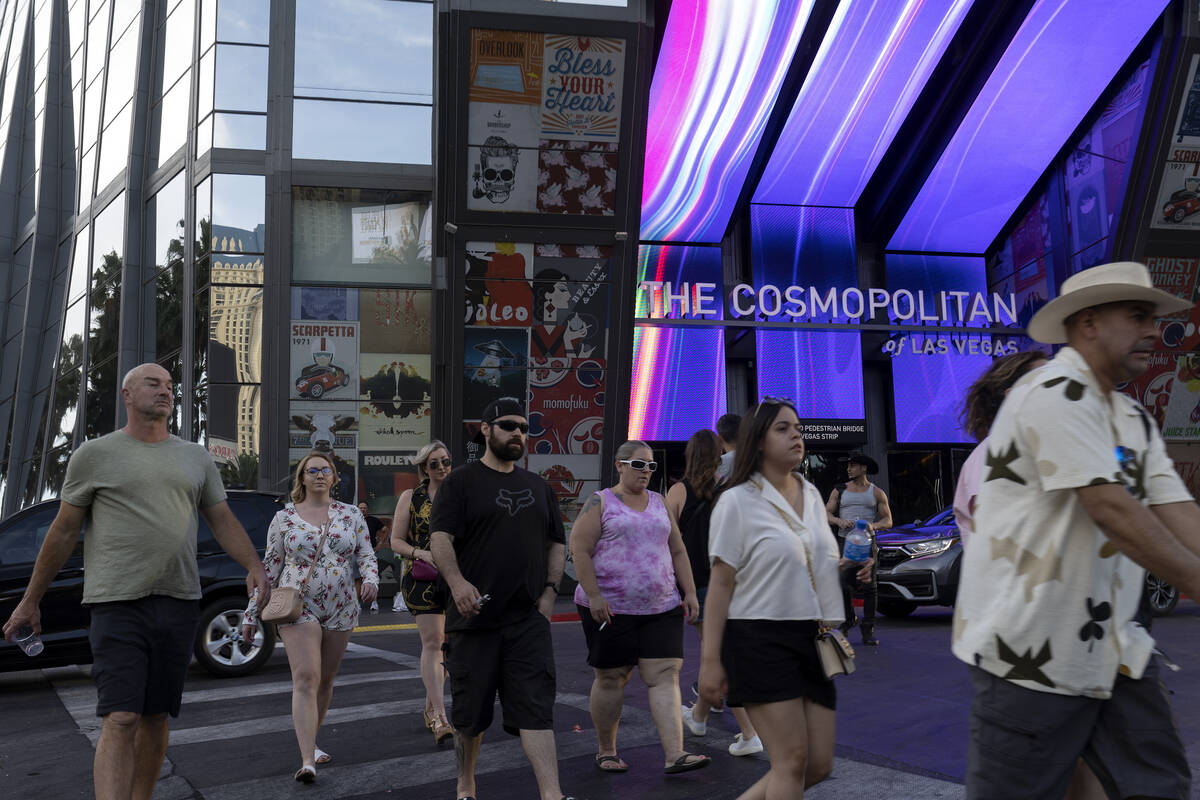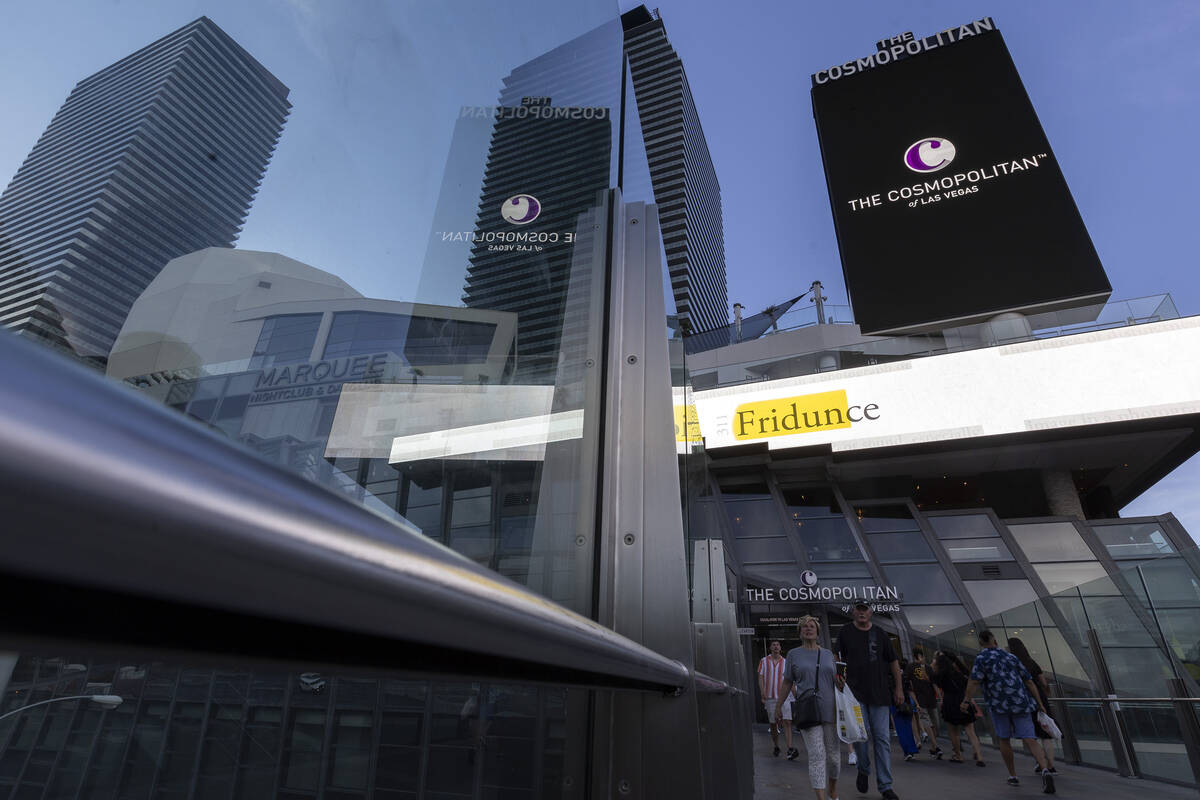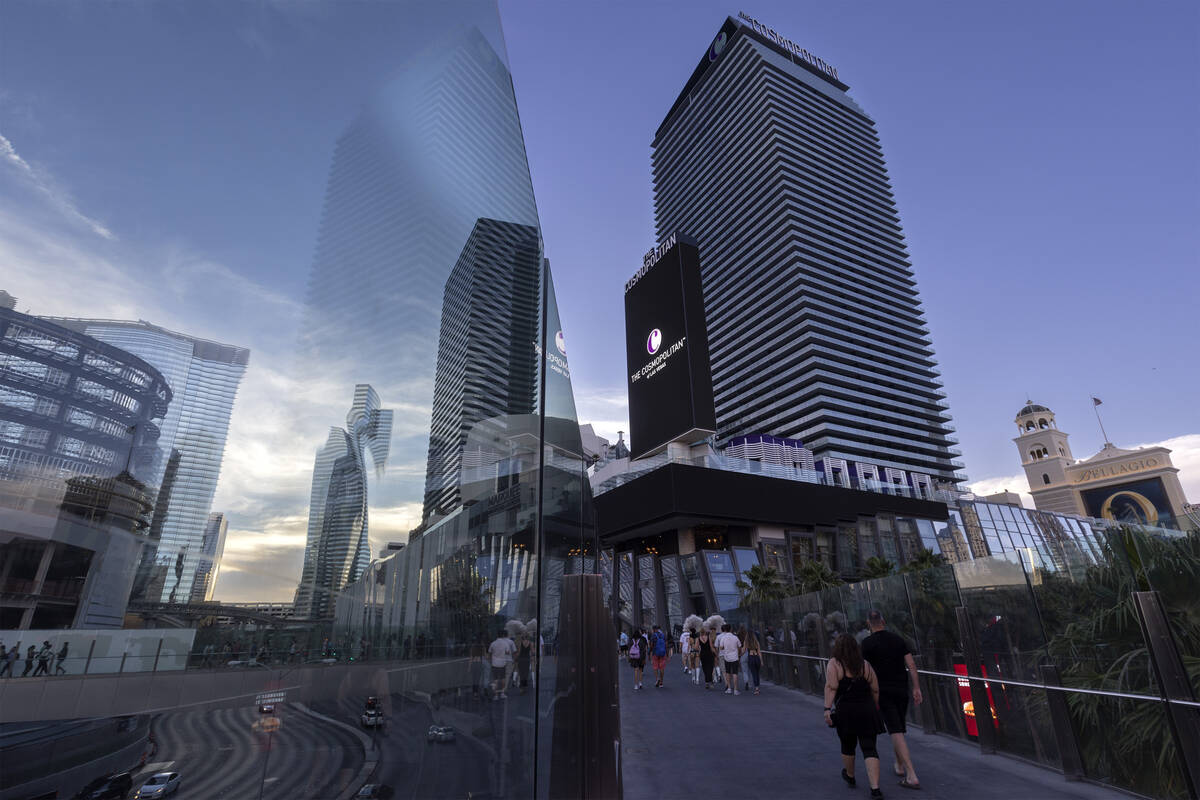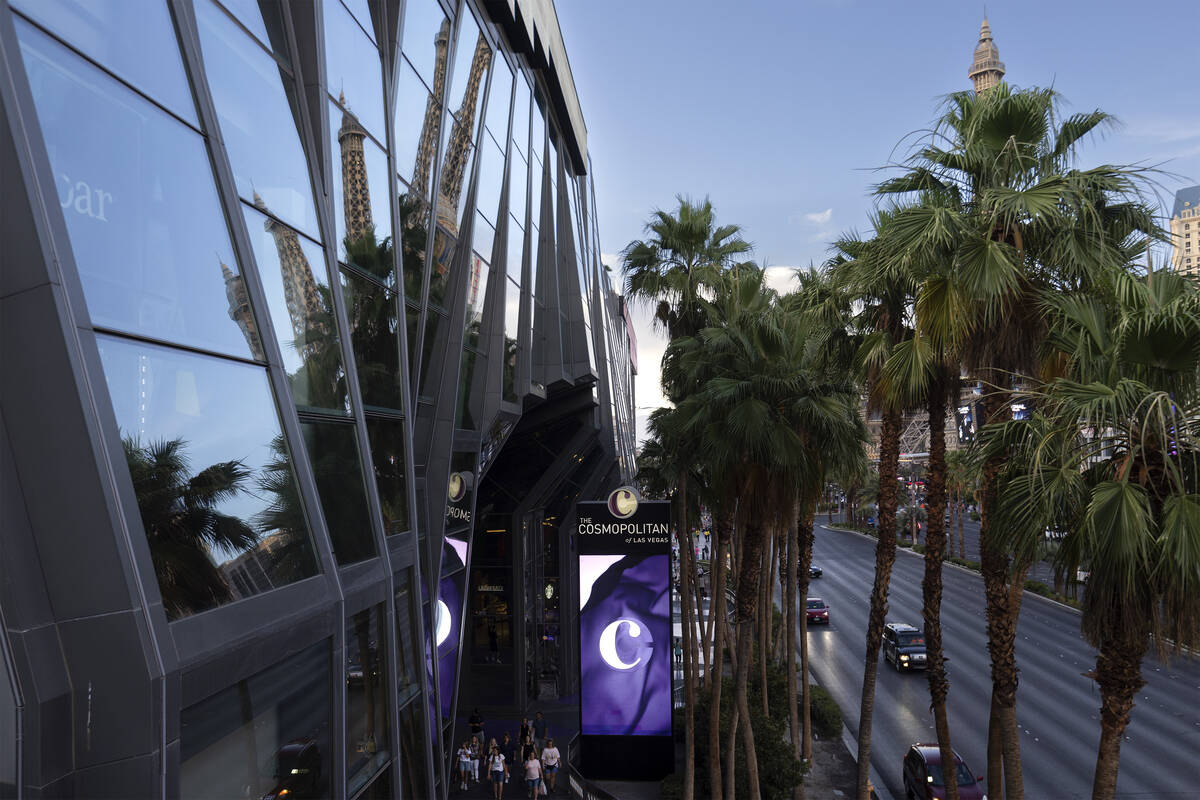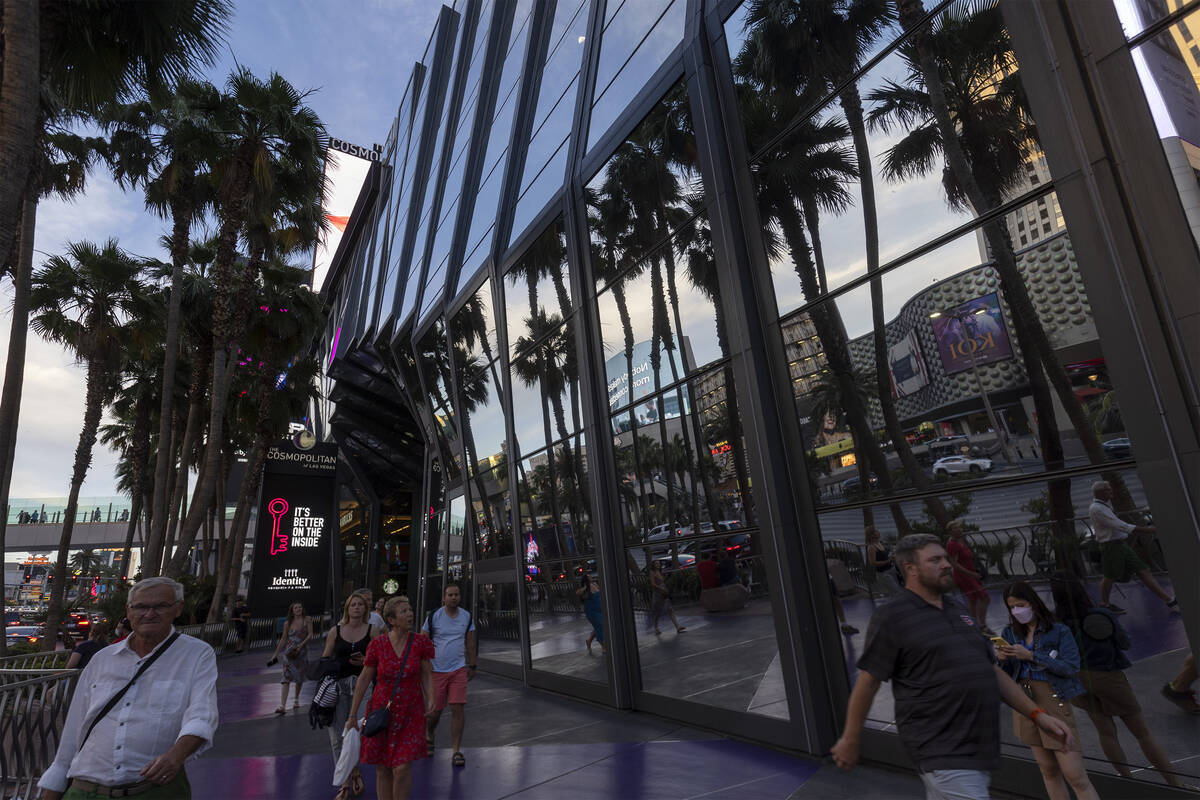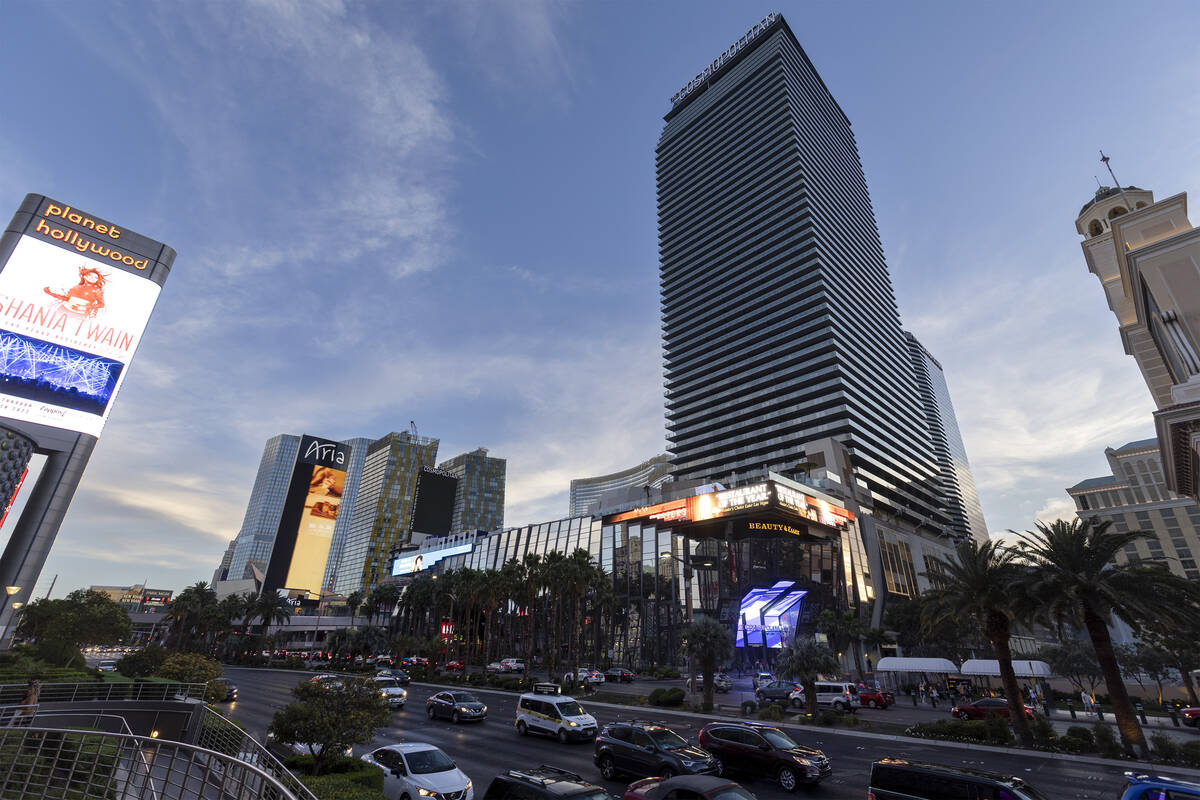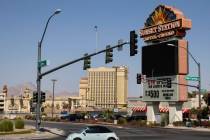Cosmopolitan sold for $5.6B, without any real estate transfer taxes
When investment giant Blackstone sold The Cosmopolitan of Las Vegas, it fetched billions above what it paid years earlier, with an executive lauding the resort’s “high level of success.”
The deal also is the latest high-priced sale in Southern Nevada that did not produce a dollar of real estate transfer taxes — an issue that Gov. Steve Sisolak says lawmakers should take up in the next legislative session.
Blackstone, led by billionaire Stephen Schwarzman, announced May 17 that it completed its $5.65 billion sale of The Cosmopolitan. The same day, a deed for the property was recorded with Clark County that showed no sales price, no transfer-tax value and no transfer tax due, with those designated lines blank, county records show.
To claim a transfer-tax exemption, the filing cited a section of state law that lets property owners shift real estate to an affiliate without incurring the tax.
Its stated explanation: “Transfer between business entities with a parent subsidiary relationship (parent to direct subsidiary).”
Blackstone did retain part-ownership in the roughly 3,000-room property, but as part of its multibillion-dollar sale, two new groups acquired ownership stakes in the flashy hotel-casino’s real estate.
All told, numerous lucrative deals in Southern Nevada — worth hundreds of millions or more than a billion dollars apiece — have been structured in ways that allowed the buyers and sellers to avoid paying real estate transfer taxes that support schools and low-income housing in Nevada, a Review-Journal investigation published last month found.
The complex deals spare large companies from paying a tax routinely slapped on sales of homes, apartment buildings, warehouses and other sites in the Las Vegas Valley, and the result is untold millions of dollars a year in lost tax collections for governments.
In such deals, buyers often acquire a limited liability company or other entity that holds ownership of the real estate, instead of purchasing the property directly.
New York-based Blackstone, which unveiled $5,000 bonuses for each of The Cosmopolitan’s roughly 5,000 employees the week before the sale closed, said in a statement for this story:
“We abide by all laws and follow the tax code in every situation. We are incredibly proud of what we delivered for the state and citizens of Nevada through our investment in The Cosmopolitan.”
‘Capture the transfer tax’
Before the Cosmo sale was completed, at least $27.5 billion worth of transactions in the Las Vegas area — comprising roughly two dozen deals involving hotel-casinos, malls and other properties mostly on or near the Strip — had closed since 2007 without any publicly reported real estate transfer taxes.
None of the buyers or sellers involved in these deals, including the latest one, have been accused of wrongdoing by any government entity, as far as the Review-Journal can determine, and sales documents claimed exemptions to the transfer tax that are allowed under state law.
Sisolak said this month that he is “hopeful” the state Legislature “will look at this in its entirety” when the next legislative session convenes in February.
“We need to capture the transfer tax on those sales,” the governor told the Review-Journal.
He also said that deals big and small need to be analyzed.
“We’re at a time where we need the revenue, clearly, in the state, and it needs to be fair for everybody,” Sisolak said.
Big money
The deals tracked by the Review-Journal involved multiple buyers and sellers, including casino operators MGM Resorts International, Station Casinos, Wynn Resorts, Las Vegas Sands Corp. and Genting Group; casino landlord Vici Properties; pension fund TIAA; Blackstone, landlord of several megaresorts on the Strip including Bellagio, Aria and Vdara; and billionaire Phil Ruffin, owner of Treasure Island and Circus Circus.
Blackstone acquired the Cosmopolitan in 2014 for $1.73 billion from Deutsche Bank. The deed that recorded the property sale with the county listed the sales price, transfer-tax value and transfer-tax due all as “$N/A.”
As part of the Cosmopolitan’s latest sale, MGM Resorts acquired the business operations from Blackstone for more than $1.6 billion and leased the property for an initial annual rent of $200 million.
On the real estate side, New York investment firm Stonepeak and the family office of Andrew and Peggy Cherng, operators of fast-food chain Panda Express, acquired ownership stakes in the property.
When the sale was announced in September, Tyler Henritze, a Blackstone real estate executive, said Cosmopolitan staff had “flawlessly executed an ambitious business plan … to position the property for such a high level of success.”
Blackstone did not disclose its new ownership stake in the property or the new landlords’ individual ownership stakes.
Stonepeak declined to comment for this story. Efforts to speak with the Cherngs or a representative were unsuccessful.
In Clark County, transfer taxes make up a fraction of a property’s purchase price, amounting to a tax rate of 0.51 percent. Selling a $300,000 house, for instance, generates a transfer tax bill of $1,530.
However, high-priced deals could generate big tax bills.
The $4.2 billion sale of Bellagio’s real estate in 2019, the $3.89 billion sale of Aria and Vdara’s real estate last year and the $1.1 billion sale of luxury mall Shops at Crystals in 2016 could have generated nearly $47 million in transfer tax revenue combined.
Instead, property records show, their collective transfer-tax bill came to nothing.
The Review-Journal is owned by the Adelson family, including Dr. Miriam Adelson, majority shareholder of Las Vegas Sands Corp., and Las Vegas Sands President and Chief Operating Officer Patrick Dumont. Contact Eli Segall at esegall@reviewjournal.com or 702-383-0342. Follow @eli_segall on Twitter.



